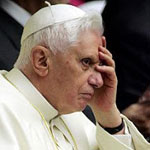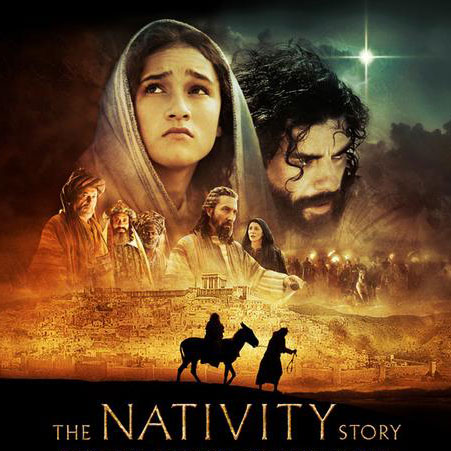Below is my Sunday homily, modified for the web. I don’t normally post homilies, but it demonstrates something notable, and perhaps objectionable. The second half of my homily, which is focused on the school shooting in Connecticut, is lifted from Elizabeth Scalia’s excellent blog post on the subject.
I knew this morning, when I read the news, that I had to rework my homily on joy. But it was only after I had read and prayed for a few hours that I realised everything I wanted to say was already said by the Anchoress. So I incorporated not only her thoughts but also her beautiful turns of phrase into my homily.
If this was an academic paper, or even an informal article, I’d be rightfully penalised for plagiarism. If this was an academic paper or article, I wouldn’t do it. But it’s a homily, which I prepared on a tight deadline, and numbed by the scale of shock and grief many families are suffering.
It’s not the usual way to prepare homilies. I wouldn’t recommend it. But still.
Last weekend, 110 young people from across Australia gathered for the Stronger retreat in Harrietville.
Fr Rob and his team packed a lot into the weekend. There was a lot of praise and worship, and lots of talks: on the goodness of the world; on true love and chastity; on our relationship with God.
There was an “Amazing Race,” which involved water bombs and shaving cream and chewing dry weetbix. There was time for journalling and sacramental confession and eucharistic adoration.
Here’s a video wrap up:
In short, there was a lot of variety.
But on the last day, when I asked the people in my small group to name the greatest grace they had received on the retreat — the most tangible touch of God — the answer was unanimous.
On the last night of the retreat, every participant was invited to literally and metaphorically throw open their arms to the Lord. To close their eyes and forget about what others might think; to forget their fear and mistrust; to abandon themselves to the Holy Spirit.
The music became more contemplative. People were invited to approach a small “prayer team,” to be prayed over. I think this time of prayer spanned two hours. Every one of the retreatants in my group named this as their greatest grace.
A sixteen year old expressed it very well. “I was standing there with my eyes closed, with the biggest smile on my face. There was no reason for it, but I couldn’t stop smiling.”
Joy. It’s the fruit of the Holy Spirit. And it’s the theme of Gaudete Sunday.
In today’s Collect: “Enable us to attain the joy of the Nativity . . . to celebrate with glad rejoicing.”
In today’s First Reading: “Shout for joy, daughter of Zion.”
In today’s Psalm: “Cry out with joy and gladness.”
In today’s Second Reading, and the Entrance Antiphon: “Rejoice in the Lord always; again I say, rejoice.”
In today’s Preface: “It is by Christ’s gift that already we rejoice at the mystery of his Nativity.”
Joy is essential to the Christian. Joy is a measure of our faith.
In these days of Advent, we can identify with our Lady, radiant with joy as she carried the Son of God within her.
We carry that joy within us, by means of the Holy Spirit. By means of the Eucharist.
And yet this morning we were met with that awful news from America. News somehow made more tragic by the season.
Twenty beautiful children, who had probably written their letters to Santa, are gone. Gunned down now — at Christmas — when nothing gives more hope, more promise, than children’s joy.
People naturally ask, “Where was God, in all of this?”
God was in the slain principal, who ran from her office straight into the firing line. God was in the teachers who pulled little kids from hallways and hid them in cupboards. God was in the emergency workers, who consoled survivors and reunited them with parents.
God was beside everyone. God is with them in grief. Because God is Emmanuel — God With Us.
But in the midst of affliction, that knowledge means little. Anger at God is normal. God has broad shoulders. He can take it.
Probably the most famous Advent hymn starts, “O Come, O Come Emmanuel, and ransom captive Israel.”
Israel is the name Jacob received after he had wrestled with God:
“Your name will no longer be Jacob, but Israel [Yisra`el: ‘He Struggles With God’] because you have struggled with God and with men, and you have won.”
(Gen 32:28)
With that in mind, the Advent hymn resonates all the more:
O Come, O Come God-With-Us
and ransom We-Who-Struggle-With-You,
we who mourn in lonely exile here
until the Son of God appear.





“In short, there was a lot of variety”
Ha ha! You said it Father.